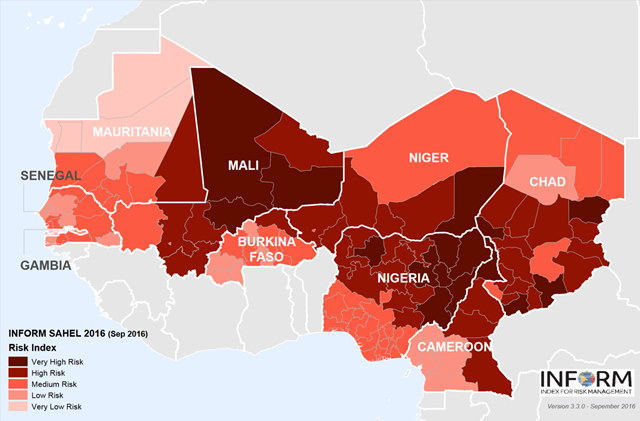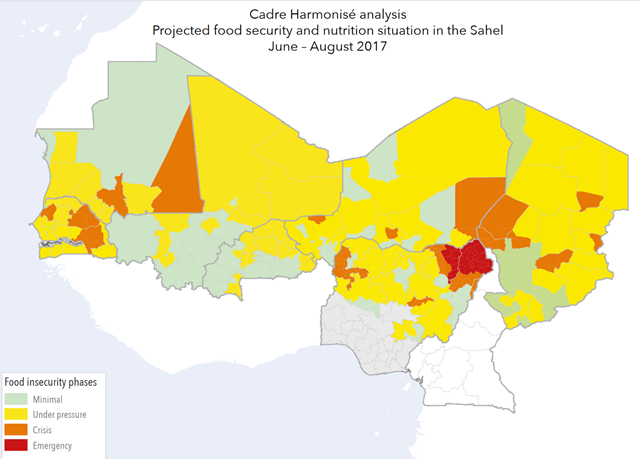UN launches $2.66 billion appeal for emergency assistance in Sahel region – ‘The Sahel will remain the site of one of the world’s major humanitarian operations in 2017’
7 December 2016 (UN) – The United Nations and its partner non-governmental organizations today launched an appeal for $2.66 billion to provide emergency assistance across eight countries in the Sahel region, where “millions of people still live in conditions of deplorable human suffering.” “The Sahel faces considerable challenges and will remain the site of one of the world’s major humanitarian operations in 2017,” stated UN Regional Humanitarian Coordinator Toby Lanzer, in a news release on the appeal, which aims to cover the needs of 15 million people across Africa’s Sahel region, which includes Chad, Mali, Niger, Cameroon, Nigeria, Burkina Faso, Mauritania and Senegal. He said the lives and livelihoods of millions of suffering people in the region will be at stake unless the humanitarian community, governments and donors renew their engagement to assist and protect those in urgent need and help these communities become less vulnerable to shocks. The UN Office of the Coordination of Humanitarian Affairs (OCHA) reported that 4.9 million people in Sahel have fled from their homes, while one in every five families remains extremely vulnerable. In addition, Chad and parts of north-east Nigeria are experiencing critical levels of malnutrition, as high as 30 per cent, which is double the ’emergency’ threshold.
Mr. Lanzer also stressed that nearly 11 million people in the Lake Chad basin area require emergency assistance and financial needs have almost tripled since year, adding that there is also half a million severely malnourished children in need of urgent help. He also highlighted a stable but worrying situation in Mali due to insecurity. The Regional Humanitarian Coordinator stressed the commitment of UN agencies and their partners to providing urgent assistance to affected individuals, their families and communities, while also promising to continue strong collaboration with governments, development and stabilization actors. “And we must, more than ever, shift ‘from providing aid to ending needs’ because extreme vulnerability in the Sahel is the most visible symptom of the triple crisis of governance, insecurity, and climate change that affects this region. The demographic explosion, which will see the region’s population double in the next twenty years, exacerbates the situation still further,” Mr. Lanzer underscored. The Sahel regional appeal is part of the larger $22.2 billion funding request for 2017 launched by the United Nations Monday in Geneva, Switzerland.
UN launches $2.66 billion appeal for emergency assistance in Sahel region


